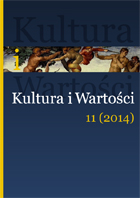
We kindly inform you that, as long as the subject affiliation of our 300.000+ articles is in progress, you might get unsufficient or no results on your third level or second level search. In this case, please broaden your search criteria.

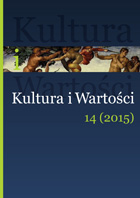
This paper presents some remarks on the influence of the First World War on Russian Revolution and post-war life in Soviet Russia. In my opinion, the ideas formulated at the time of war and revolution by Nikolay Berdyaev (1874-1948) shed light on the fundamental aspects of 20th century politics and social life both in Russia and other countries. Here, I understand war as the essence of modern politics. Berdyaev’s reflections on WWI and Bolshevik revolution prefigure and confirm the belief shared by such thinkers as Jan Patočka, Alain Finkielkraut or Pierre Hassner, that the 20th century brings the inversion of the most famous Clausewitz’s maxim: after WWI, politics becomes the continuation of war conducted by other means. Berdyaev thinks about revolution as the “decay of the war” and analyses Russian communism as a “war reality” which is characterized by such phenomena as dehumanization, mob rule, totalitarianism, total mobilization, militarization of civil sphere, the rule of technology and, last but not least, the appearance of the “new man”. In his opinion, war and post-war militarism have determined the ideology, cultural patterns, and the means of wielding political power both in Russia and in the West.
More...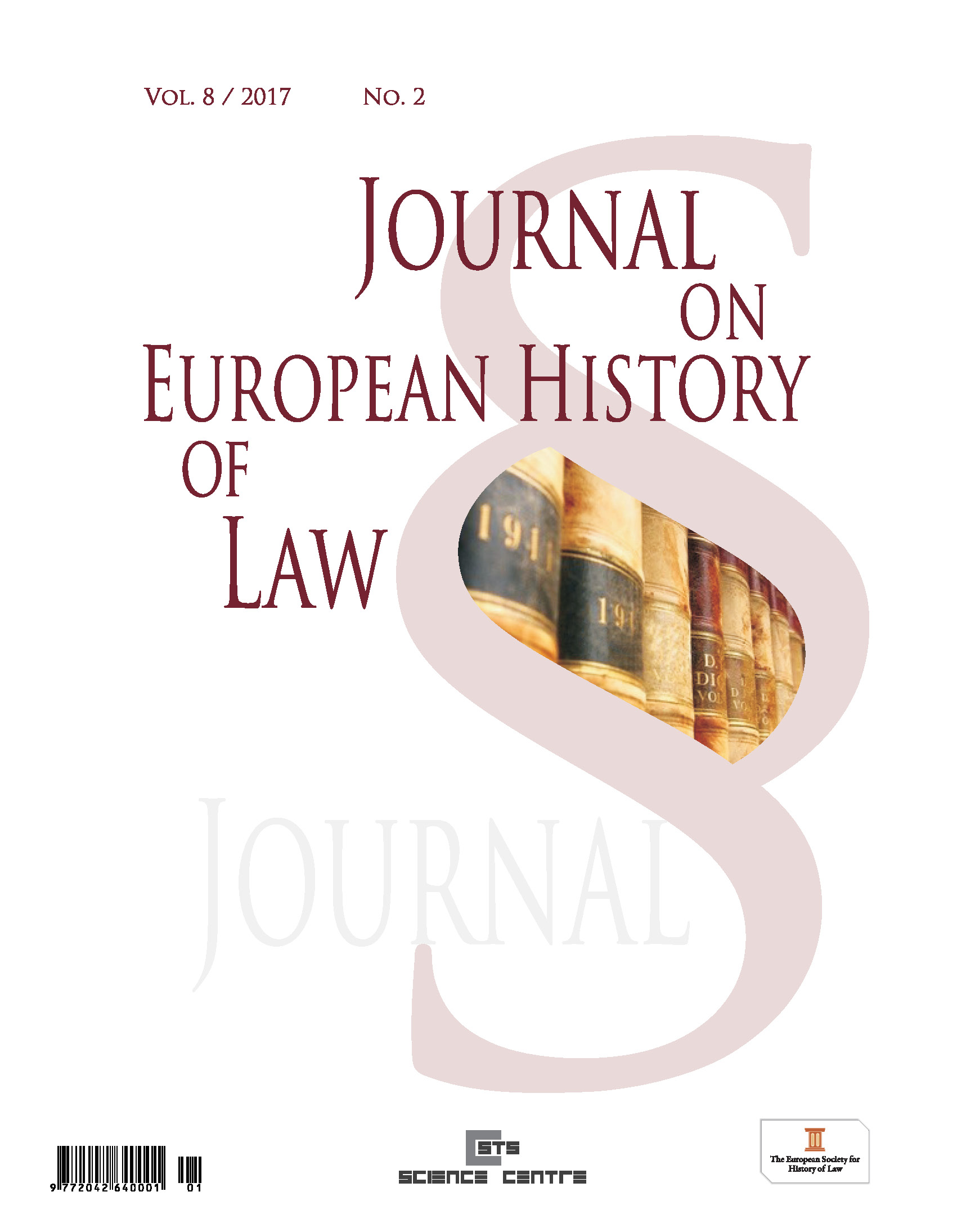
Hereditary monarchy and enlightenment political theory hardly seem to be reconciled at first glance. And yet, the advantages and disadvantages of monarchical succession according to lineage were a continuous subject of debate between some of the most prominent enlightenment thinkers. Outlining this debate, the paper at hand gives an – even if eclectic – account of a controversy that spans over more than two and a half centuries.
More...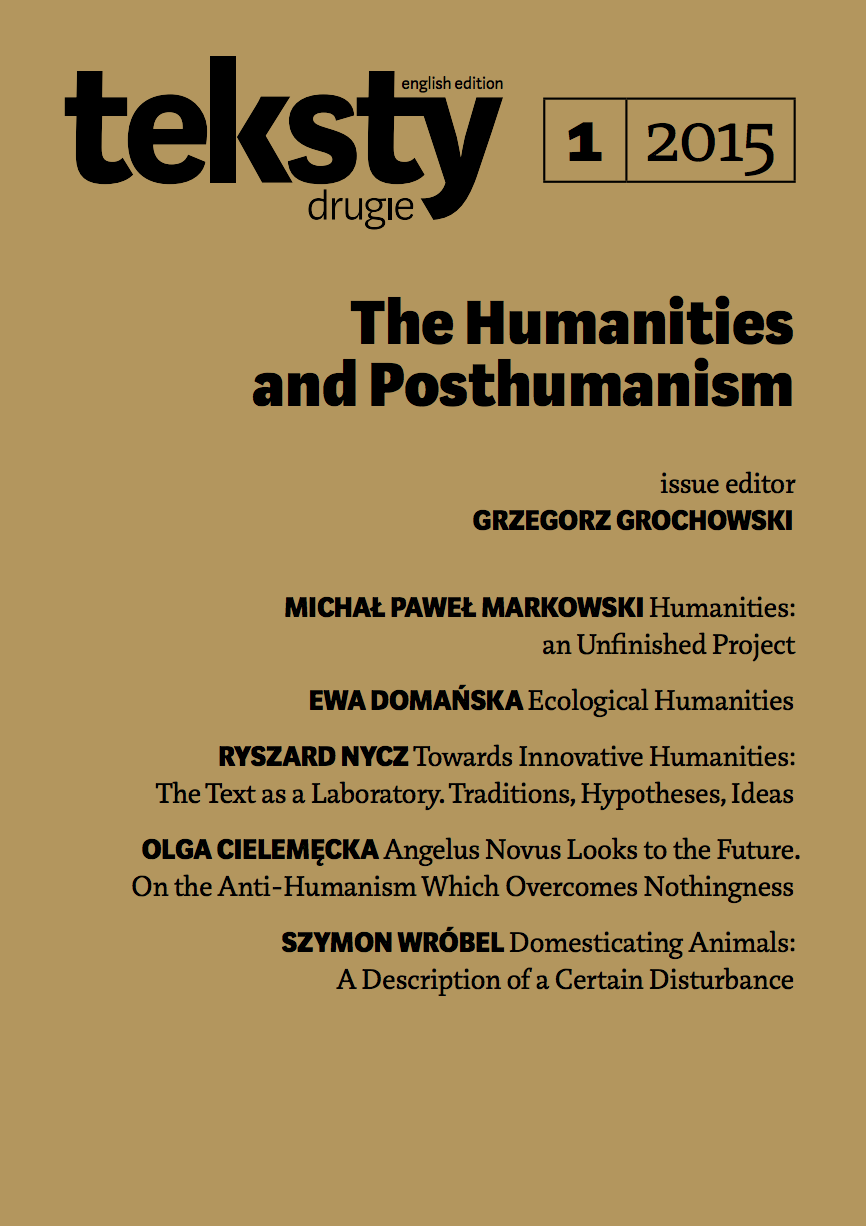
The foreword to this issue focuses on the core functional differences between the humanities and hard sciences (i.e. different approaches to such phenomena as language, translation, teamwork, writing, discipline.s history, publishing, tradition, innovation). Yet, this dichotomy is questioned in the conlusion. The author argues that whenever human artifacts are at stake, both the humanites and experimental sciences are equally hard, because they inquire the same matter, ie. how the products of human cognitive activities were created and what are their social functions. Therefore, the author calls for a new model for interdisciplinary studies.
More...
This article outlines a project of anthropological aesthetics as the area of interdisciplinary investigations. Anthropological aesthetics takes the advantage of narrativism methodology in order to analyse the condition of creative individual (the idea of genius) who is self-creating whilst being created through stories told by the others. The article’s central thread is a characteristics of avant-garde artists’ narratives of artistic experiences, set in the context of anti-anthropocentric issues.
More...
Discussing more and more present in the ethology trend of anthropomorphization, the article attempts at synthetic image of the anthropological difference, i.e. the difference identifying the human life form. The reconstruction of Michael Tomasello.s cooperative structure of human communication as a condition for the emergence of the infrastructure of shared intentionality (enabling the possession of the theory of mind, i.e. ability to perceive the world on multiple levels from the perspective of the others) leads to posing the question of the human being from the philological point of view: being-in-the-world is analysed in this respect as being-on-the-stories. The thesis that it is precisely fabulation (and not only naming) which is a natural human way of entering an exchange with oneself, the others and the world, is supported by the statement of the evolutionary benefits such as simulational and immunological dimension of a story.
More...
The article will define and identify features of the ecological humanities understood as a symptom of the emergence of a new scientific paradigm. I am interested particularly I ecoposthumanities– a tendency that is developing since the late nineties in the frame of posthumanist criticism of anthropocentrism, Eurocentrism and Western science. The paper will indicate the role of traditional ecological knowledges and native knowledges as well as the development of biohumanities (an inclusive type of knowledge that connects human, social sciences and life sciences) as important aspects of ecoposthumanities. The ecological humanities offers an utopian vision of meta-communities of humans and non-humans based on symbiotic relations, co-evolution and co-dependency and anticipates future knowledge productions in terms of extended mind and distributed cognition.
More...
The article is an attempt to return at the human being .after the cyborg, originating in the need to overcome the posthumanist impasse of some of the trends of contemporary cultural theory. The author is not trying to fix the identity of human/non-human animal in all of its bio-digital configurations, but rather discuss to what extent the transformed understanding of human being can not only help us think better about ourselves and other who can but do not have to be like us, as well as live better with others: machines, people, non-human animals. This research is equally interested in the pragmatics of how and in the character of the we.
More...
In hitherto studies the attention has been mostly paid to the difference between sex and eroticism, treating the first as characteristic of animals (also human animals) and the latter as specifically human. From a posthumanistic perspective, it seems more justified to speak of various forms of stressing one’s qualities by human and non-human animals, rather than highlighting the dichotomy: animal (i.e. primitive) sexual instinct– human sophisticated sense of eroticism. In the article the author concentrates on things which cover human body: underwear, cloths, shoes in order to prove that human erotic attractiveness is to a large extent created by these things. Theoretical framework for this reflection is provided by the concepts worked out within the object studies.
More...
In the article there are the scientific paradigms of cultural reflection as coultourologii base in relation to becoming as fundamental scientific discoursou and practical vision of cultural processes.
More...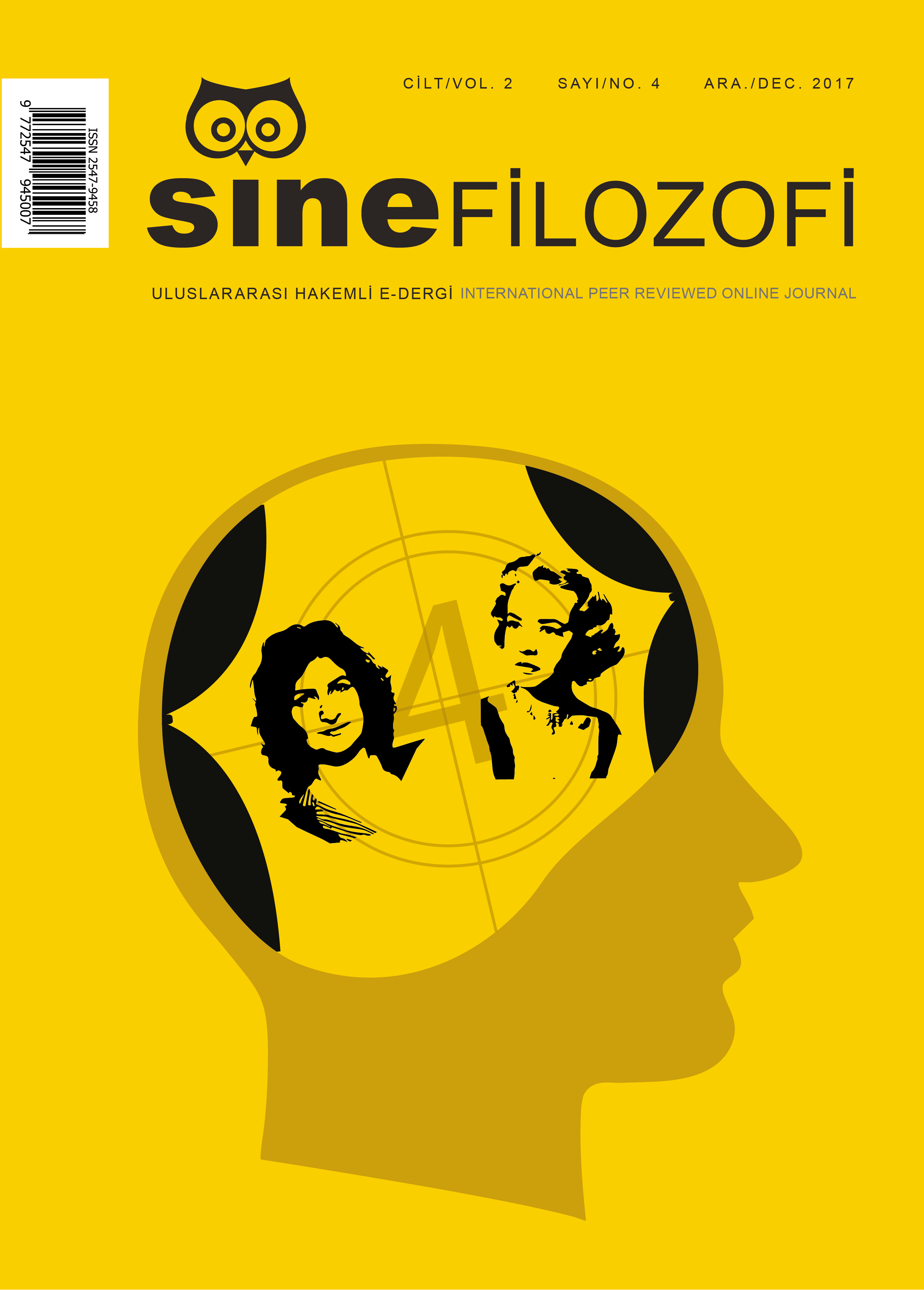
Pier Paulo Pasolini’s engagement with Antonio Gramsci is both inspiring and tragic, beginning with Pasolini’s early poem, “The Ashes of Gramsci,” and ending with the film-maker’s murder in 1975. In his essays and films, Pasolini explores his affective, aesthetic preoccupation with the “sub-proletariat” of the Roman suburbs, contrasting it with Gramsci’s political and strategic concerns. This article analyses that material with special emphasis on its relation to Pasolini’s work on the semiotics of film and his theory of the “cinema of poetry.”
More...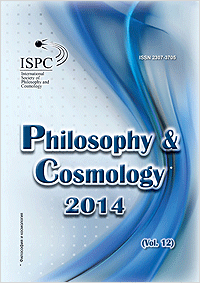
I am a practising infectious diseases clinician that believes that understanding the modern observations of scientific cosmology are fundamental to understanding how we conduct ourselves in our daily lives as citizens of this planet. In addition, having this understanding has assisted me in caring for patients at the edge of their life and to provide compassionate and competent medical care.
More...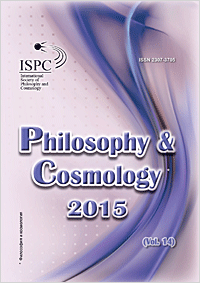
This article provides an analysis of the future Ukrainian’s image in modern studies. The author has shown that the works on the prediction of the future Ukrainian’s image are conducted by political scientists, public figures, scientists. There are also appeals to the social and cultural heritage, and an analysis of current operations in Ukraine, as well as projections for the near future. But the future Ukrainian’s image, which was accepted by society, does not exist in nature yet. Still, there is no general vision where to go and how to look at the future aspirations.
More...
The article discusses the approach to the solution of the mind-body problem based on the combination of the mind-brain interactionism and determinism, as proposed by prof. V. Vasilyev. The basic thesis of this approach – that the belief in determinism and «the identity of past and future», as «a direct expression of the structure of human consciousness», is necessary («inevitable for us») – is contested. An argument is provided to show the possibility of a consistent worldview that admits the existence of causeless events. An alternative view of causation – based on K. Popper’s proposition to regard the concept of causation as derived from the concepts of regularities or laws of nature – is proposed as one (although not the only one) of such possibilities. The main objections to determinism are set out. The argument is made that interactionism in the combination with indeterminism much better agrees with natural human self-understanding than the deterministic conception, and allows rescuing the ideas of freedom and responsibility, which are necessary for a meaningful human life. The way to properly combine the deterministic and the indeterministic aspect of mental events is proposed. The idea about the fundamental role of the mental "individual" is elucidated and defended.
More...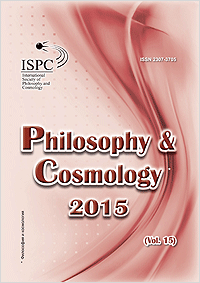
Sustainable development is seen as a global resolution strategy socio-natural contradiction between the growing needs of humanity and limited natural resources. This scenario seems to be an exit from the global ecological crisis and treated as a global control system balanced on social and natural development.
More...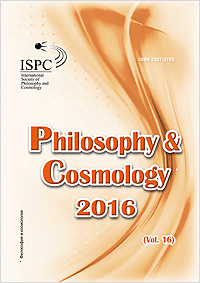
Historically known for three major types of philosophy, that developed in parallel in every human civilization, and therefore do not exclude each other, and in accordance with the principle of subsidiarity only complement each other in many different respects: scientific philosophy, anthropology and religious philosophy. The more we come to know and deeply immense world around us, the more clearly and insistently arises the main philosophical question: why something exists? After all, it would be easier if there was nothing at all, including the people asking this tricky question. Nevertheless, the world still exists (according to the “anthropic principle”), but, I ask, why? It does not matter, the existence of which there is a speech: the “matter”, “God”, “absolute spirit” or something completely different. That search for an answer to this question (why should something there?) Is the true purpose of philosophy if at all, the problem is solvable (in the sense of Kant’s “metaphysics”). And then there is a special philosophical category “existence”, which requires a special study.
More...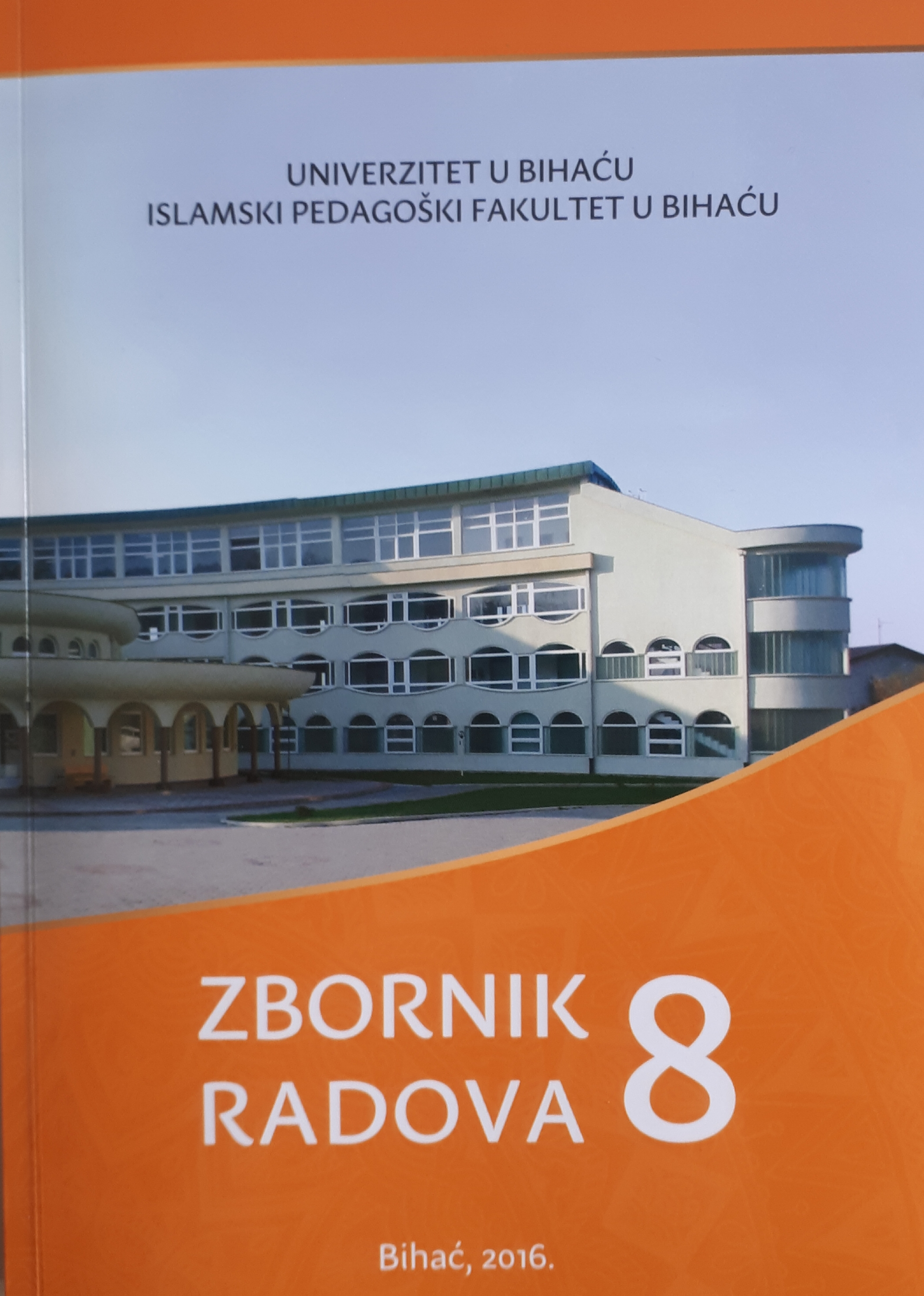
Since learning is a central concept when it comes to education, it is necessary to devote full attention to it. It is the duty of schools to train pupils for independent learning and to develop competences that enable them to be active participants in the teaching process. By taking into account individual abilities of each pupil, teachers will create a socio-emotional climate in the classroom that will ensure equal treatment and successful mastering of educational material by all pupils, according to their abilities and skills. The responsibility of teachers is big, hard, but also noble and beautiful. Is there anything more beautiful than relationship between teachers and students? Current issue in today's school is the inclusion of children with disabilities into regular classes. This is a very important moment in the system of education because it is related to people who have special needs in terms of disability and inevitably require special treatment in order to achieve results in accordance with their capabilities and abilities. Therefore, it is very important to know the personal components of intelligence of each student. This knowledge directs us how to successfully work, how to harmonize our requirements, and which methods and procedures to apply in order to achieve optimal results with pupils. Successful learning will be achieved by those educators who manifest love interest and expertise in the work they do. However, this is only one side of a successful educational work. The participants in the teaching process are (or at least should be) pupils whose success in learning depends on their efforts. Their interest, motivation to learn with the proper use of their own resources will ensure that learning is successful.
More...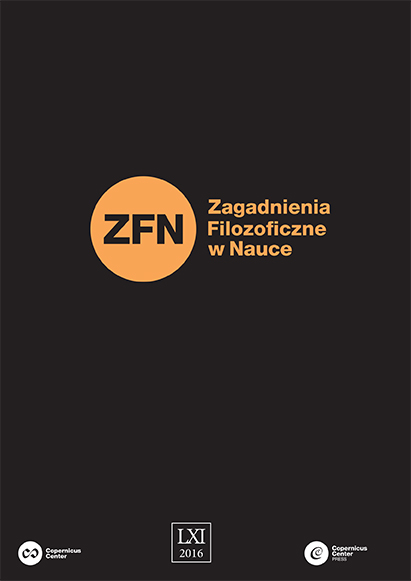
With findings from cognitive science, neuroscience, information science, and paleoanthropology, an anthropologist and astronomer-priest team take a new look at the nature of morality, and suggest parameters that are often very different from the philosophical and theological literatures. They see morality as a biologically-based arbitration mechanism that works along a timeline with a valence of good to bad. It is rational, purposeful, social, and affected by emotion but not dominated by it. The authors examine the age and sex structure, family roles, environment, cognition, and lifeway of Homo erectus, an early hominin who arose 1.9 million years ago, and propose that he had a rudimentary moral system that his biology and culture enabled – but only after he learned to control fire. Hearths gave rise to an intense, social, emotional, experiential context where belief systems could be learned by youth before they achieved adult cognition.
More...
Are there brain differences between believers and nonbelievers? In order to investigate the effect of religious beliefs on cognitive control, Michael Inzlicht and his collaborators measured the neural correlates of performance monitoring and affective responses to errors, specifically, the error-related negativity (ERN). ERN is a neurophysiological marker occurring within 100 ms of error commission, and generated in the anterior cingulate cortex (ACC). The researchers observed that religious conviction is marked by reduced reactivity in the ACC, a cortical system that is involved in the experience of anxiety and is important for self-regulation. Thus, they claimed that these results offer a mechanism for the finding that religion is linked to positive mental health and low rates of mortality.
More...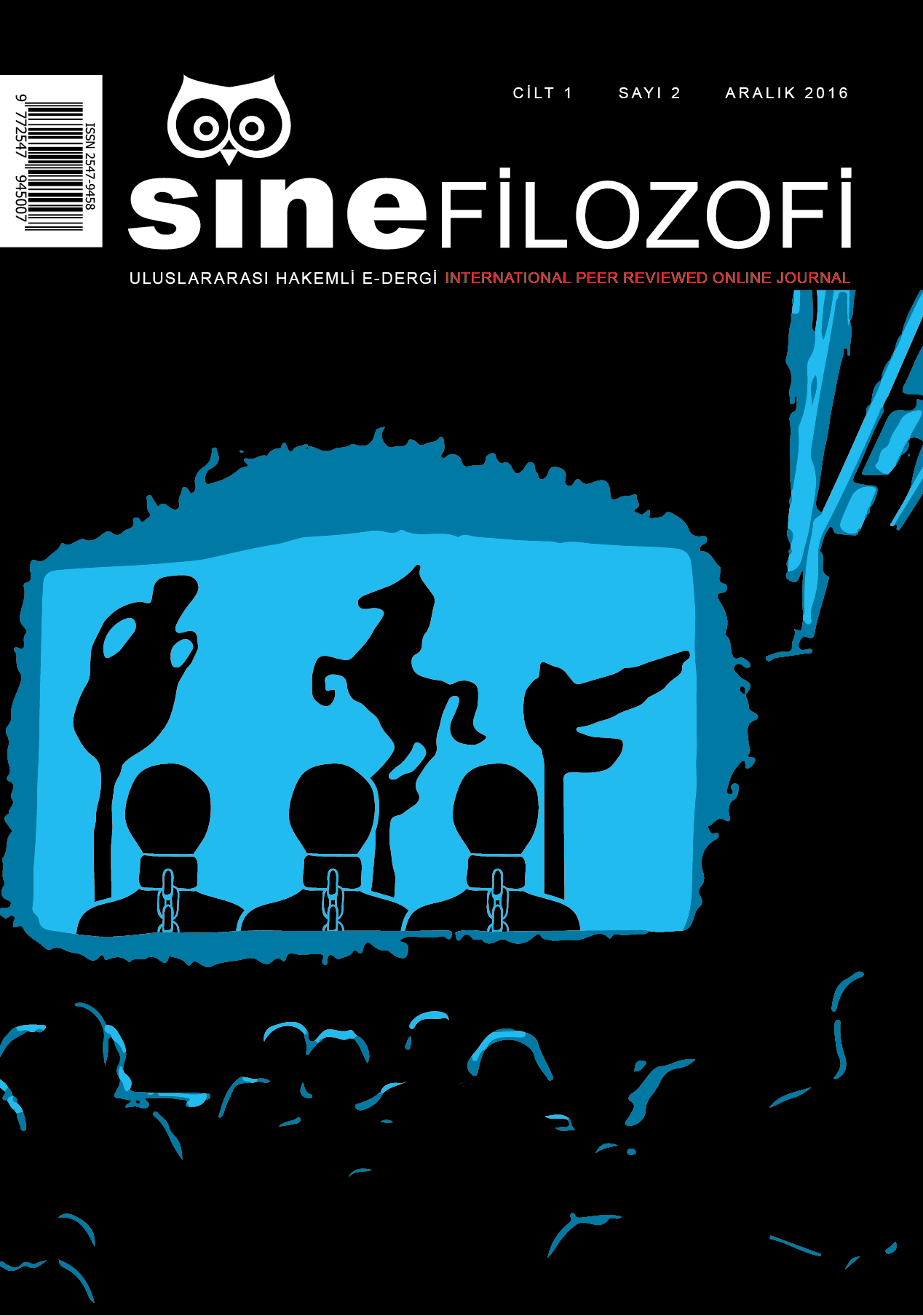
How can a movie think about the flow of time? On the infinite complexity of causality; decisions, accidents, "ifs", sometimes moments when we are not aware, in short how does cinema think about the chaotic uncertainty of time? The main purpose of this paper will be to think about a pure thought of a ‘‘whole’’ regarding the conception of chaos, which transcends social roles and hundreds of factors establishing our identities, and then try to trace these ideas in cinema. While cinema is showing the uncertainties in our lives, it will create other qualitative leaps. That is precisely why cinema is not a collection of images that does not have any material weight. A film carries the latent powers of “thinking” that is waiting to be transformed into infinite things. This paper will discuss the question above in the context of cinema’s montage element.
More...